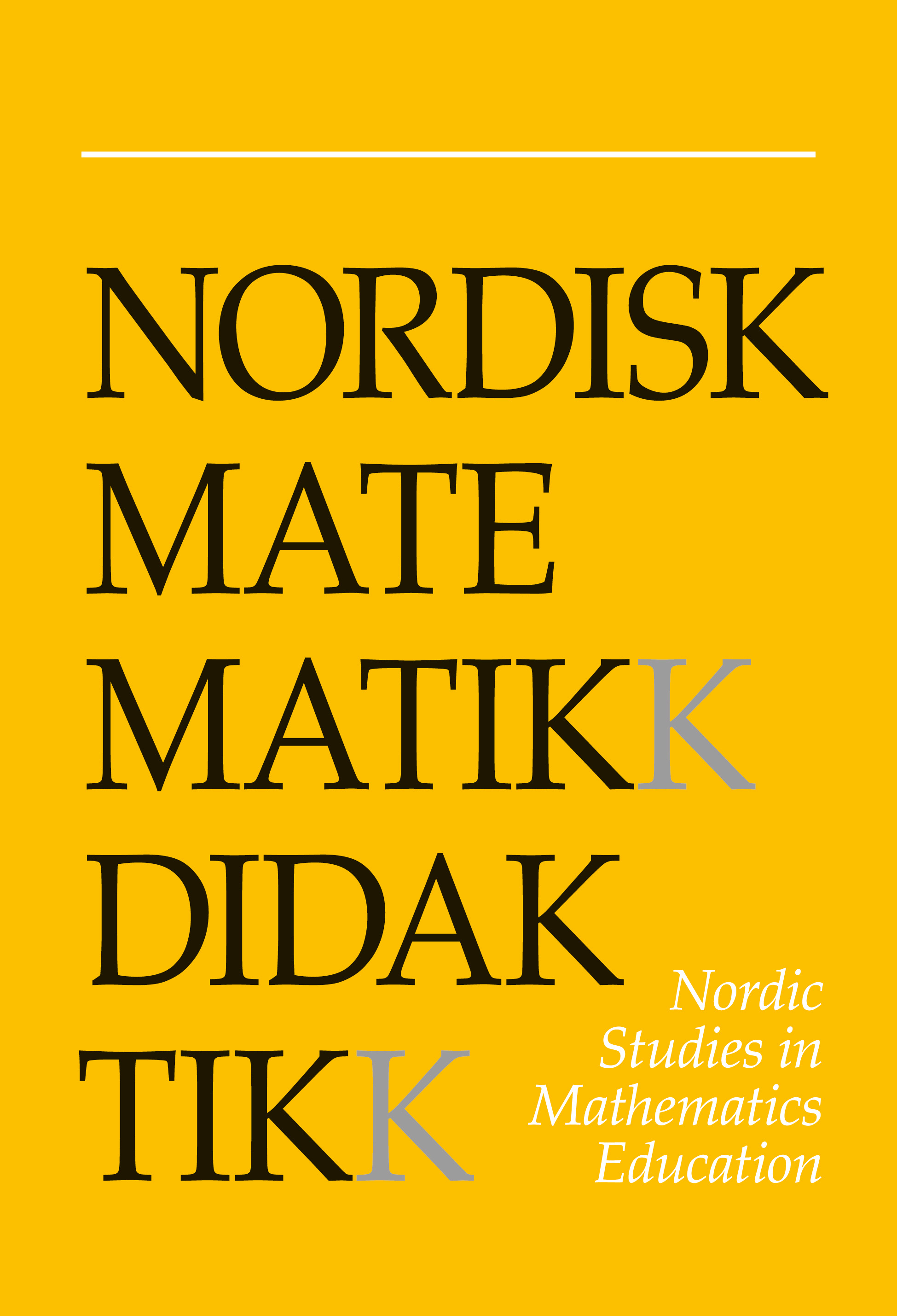Comparison of three textbooks published for 8th grade in Iceland
DOI:
https://doi.org/10.7146/nomad.v20i3-4.148694Abstract
This study compares characteristics of three Icelandic mathematics textbooks for grade 8, used over a period of 25 years. The textbooks’ structure, content, attitudes to mathematics and mathematical competences were compared and portrayed in the light of official curricula. The purpose of the study is to investigate through the focal point of textbooks the implementation of new curricular policy including new topics as well as mathematical competences and attitudes to mathematics. Our findings show that the textbooks differ considerably with respect to the characteristics studied. The objectives of mathematics formulated in the national curriculum are reflected to a great extent in the most recent textbook Átta – tíu, but the widely used translated textbook, Almenn stærðfræði I, deviates in important ways from the curriculum and much more than the Talnaspegill/Hornalína books that only stayed in use for a short while.
References
Bjarnadóttir, K. (2006). Mathematical education in Iceland in historical context. Socio-economic demands and influences. Reykjavík: Háskólaútgáfan. Retrieved from http://rudar.ruc.dk/handle/1800/2914
Bjarnadóttir, K. & Hreinsdóttir, F. (in press). PISA 2012 - Mismunandi gengi nemenda í stærðfræði eftir stærð skóla - rýnt í ástæður [PISA 2012 - Pupils' different performance in relation to school size - exploration of reasons]. Uppeldi og menntun.
Halldórsdóttir, R. G. (2008). Stærðfræði fyrir 8. bekk, námsbækur - námskrá. Greining á námsbókum síðasta aldarfjórðung [Mathematics for grade 8, textbooks - curricula. Analysis of mathematics textbooks during the last quarter of a century] (M. Ed. thesis). Reykjavík: School of Education, University of Iceland.
Howson, G. (1995). Mathematics textbooks: a comparative study of grade 8 texts (TIMSS monograph no. 3). Vancouver: Pacific Educational Press.
Lög um grunnskóla nr. 91/2008 [Law on compulsory school no. 91/2008].
Pepin, B. & Haggarty, L. (2001). Mathematics textbooks and their use in English, French and German classrooms: a way to understand teaching and learning cultures. ZDM - The International Journal on Mathematics Education, 33 (5), 158-175. https://doi.org/10.1007/BF02656616
Remillard, J. T. (2000). Can curriculum material support teachers' learning: two fourth-grade teachers' use of a new mathematics text. The Elementary School Journal, 100 (4), 331-350. https://doi.org/10.1086/499645
Robitaille, D. F., Schmidt, W. H., Raizen, S., Mc Knight, C., Britton, E., & Nicol, C. (1993). Curriculum frameworks for mathematics and science. Vancouver: Pacific Educational Press.
Robitaille, D. F. & Travers, K. J. (1992). International studies of achievement in mathematics. In D. A. Grouws (Ed.), Handbook of research on mathematics teaching and learning (pp. 687-709). New York: Macmillan.
Schmidt, W. H., Mc Knight, C., Valverde, G. A., Houang, R. T., & Wiley, D. E. (1997). Many visions, many aims: a cross-national investigation of curricular intentions in school mathematics. Dordrecht: Kluwer Academic Publishers. https://doi.org/10.1007/978-94-011-5786-5
Schmidt, W. H., Mc Knight, C., Houang, R. T., Wang, H., Wileu, D. E. & Cogan, L. S. (2001). Why schools matter: a cross-national comparison of curriculum and learning. San Francisco: Jossey-Bass.
Sigurgeirsson, I. (1992). The role, use and impact of curriculum materials in intermediate level Icelandic classrooms (Ph.D. thesis). Falmer: University of Sussex.
Valverde, G. A., Bianchi, L. J., Wolfe, R. G., Schmidt, W. H., & Houang, R. T. (2002). According to the book. Using TIMSS to investigate the translation of policy into practice through the world of textbooks. Dordrecht: Kluwer Academic Publishers. https://doi.org/10.1007/978-94-007-0844-0
Downloads
Published
How to Cite
Issue
Section
License

This work is licensed under a Creative Commons Attribution-NonCommercial-ShareAlike 4.0 International License.



